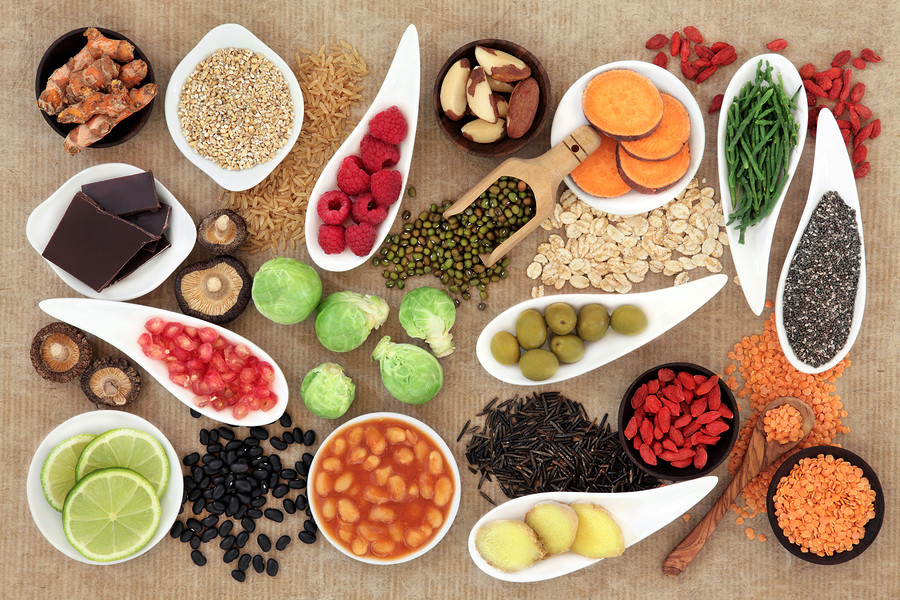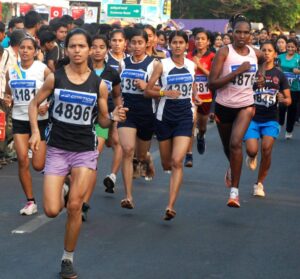They say you can’t outrun a bad diet. As a professional marathoner, I can tell you that statement rings true. For someone like me, pounding the pavement for countless miles is just half the battle. The other half? Proper nutrition. It’s the fuel that propels me forward, keeps me energized, and allows me to recover efficiently.
So, whether you’re a seasoned marathoner or just lacing up for your first 26.2-mile adventure, this blog post is your guide to fueling your marathon journey, from training to race day. Here, I’ll share the key nutritional strategies I use to perform at my peak and avoid the dreaded bonk (hitting the wall).
Building Your Nutritional Foundation:
- Know Your Macros: Understanding your macronutrients (carbohydrates, protein, and fats) is crucial. Carbs are your primary energy source, so aim for a diet rich in complex carbs like whole grains, fruits, and vegetables. Protein helps with muscle repair and recovery, so include lean protein sources like chicken, fish, and legumes. Healthy fats provide satiety and support hormone function. Consult a registered dietitian to establish a personalized macronutrient ratio based on your training intensity and body composition.
- Focus on Quality, Not Quantity: Don’t just stuff your face with anything edible. Fill your plate with nutrient-dense whole foods that provide sustained energy and essential vitamins and minerals. Prioritize fruits, vegetables, whole grains, lean proteins, and healthy fats.
- Hydration is Key: Being properly hydrated is crucial for optimal performance. Aim to drink plenty of water throughout the day, even when you’re not thirsty. During long training runs, carry a water bottle or hydration pack and make sure to sip regularly. Consider electrolyte-enhanced beverages for longer runs to replenish lost minerals.
Pre-Run Fueling:
- The Golden Rule: Experiment and Find What Works for You: Every runner reacts differently to pre-run meals. Experiment with different options in the weeks leading up to the marathon to discover what settles well in your stomach and provides sustained energy.
- Focus on Carbohydrates: Aim for a meal rich in complex carbohydrates 2-3 hours before your run. Good options include oatmeal with berries and nuts, whole-wheat toast with avocado and egg, or a sweet potato with yogurt.
- Don’t Forget Protein: Include a moderate amount of protein in your pre-run meal to aid in muscle repair and prevent early fatigue. Examples include a small serving of chicken or fish, Greek yogurt with granola, or a protein smoothie.
- Keep it Light and Digestible: Avoid greasy or heavy meals before your run, as they can cause digestive discomfort.
Mid-Run Fueling:
- Replenish Regularly: Your body needs a steady stream of energy during long runs. Aim to consume carbohydrates every 30-45 minutes, depending on your individual needs. This could be a sports gel, energy chews, a banana, or a handful of raisins.
- Practice Your Race Day Strategy: Use your training runs to experiment with different mid-run fueling options and practice consuming them while maintaining your pace. This will help you avoid surprises and potential digestive issues on race day.
- Listen to Your Body: Don’t force yourself to consume something if it doesn’t sit well with your stomach. Adjust your fueling strategy based on your body’s response during training.
Post-Run Recovery:
- The Golden Window: The first 30-60 minutes after a run is a critical window for muscle recovery. Aim to consume a combination of carbohydrates and protein within this timeframe to replenish glycogen stores and repair muscle tissue. A good recovery meal could be chocolate milk, Greek yogurt with fruit and granola, or a chicken breast with brown rice and vegetables.
- Rehydrate: Post-run hydration is just as important as pre-run hydration. Replenish fluids lost during your run by drinking water or an electrolyte-enhanced beverage.
- Focus on Whole Foods: Post-run doesn’t mean a free pass to indulge in junk food. Choose whole foods rich in carbohydrates, protein, and essential nutrients to support your body’s recovery process.
Race Day Nutrition:
- Stick to Your Tried-and-Tested Routine: Don’t experiment with new foods or drinks on race day. Stick to the pre-run, mid-run, and post-run fueling strategies you’ve practiced and perfected during training.
- Plan Your Aid Station Strategy: Familiarize yourself with the types of snacks and beverages available at the aid stations. Plan what you will consume at each station to ensure you maintain a steady flow of



